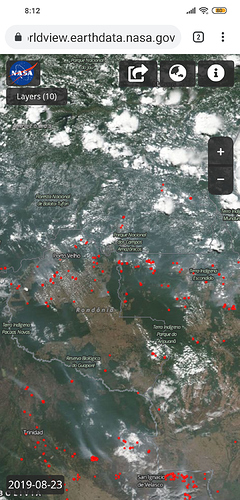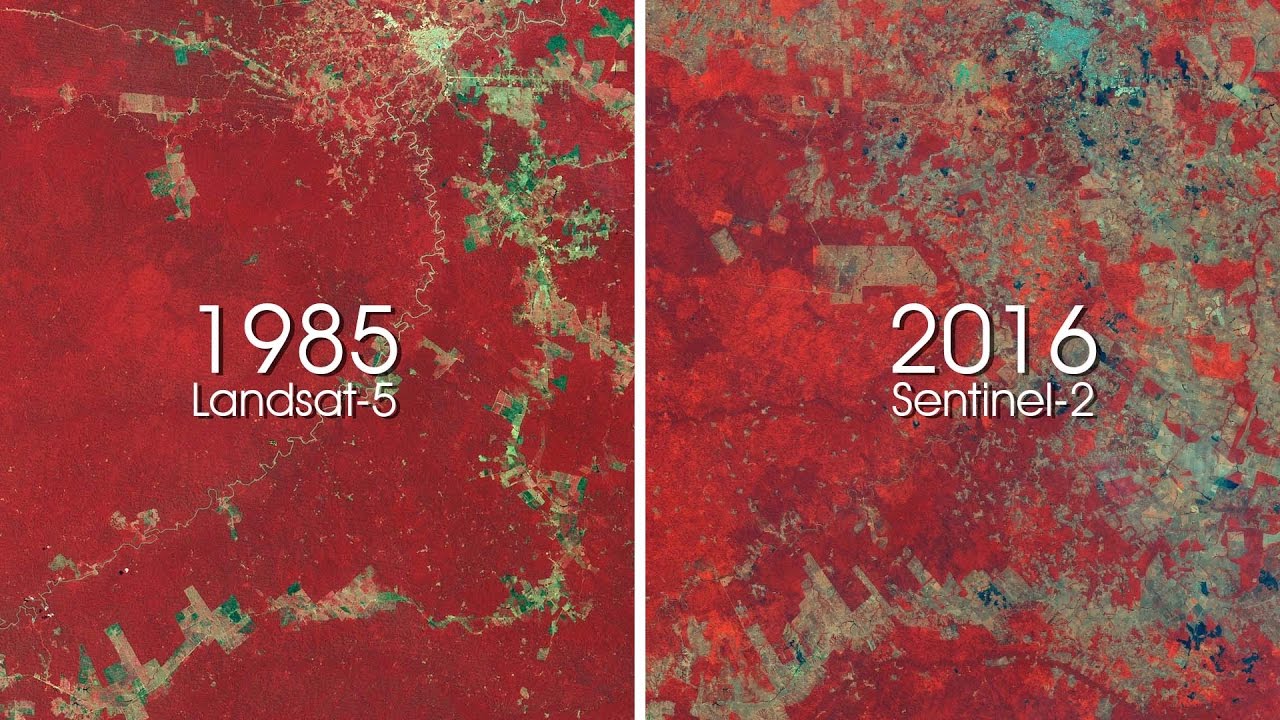Nothing is permanent and things always keep changing, this is what I learnt from Buddha, the climate also has to change why are we so busy blaming ourselves and others for this, those who did harm will get penalized their karma will take care of it, isn’t that right?
Here’s an imperfect analogy: Say you’re standing in a park and talking with a friend. A series of people walk by, each leaving a paper cut on your friend’s arm. Would you explain to your friend that while they may be in pain and bleeding, since everything is impermanent there’s nothing to be concerned about? Or would you try to clean and bandage the wounds while doing your best to prevent new ones?
You should definitely help any being in need regardless he is your friend or not.
Climate change is different topic simile for which I can refer which Buddha used to give to the Brahmin traditions of his time with a mango tree and neem tree and tell Brahmins to do all the puja and mantras on neem tree to produce mango fruits. Will all the chanting and all the ceremonies which can be done stop climate change or bring back the climate to the normal where it should be?
Karma shouldn’t lead to a defeatist attitude! It’s an explanation of only one cause of multiple causes that could lead to an outcome. It really should be enabling wholesome action. But we cannot always control what other people think…
If the planet becomes unable to support human life, there might be aeons of suffering and waiting for opportunity to work towards liberation. But it might be more skillful to make efforts toward harmlessness.
Is this consisent with Dhamma?
The author of the OP (original post) in this thread titled it “Democracy dies in darkness” and ended the OP with the sentence:
We cannot afford to remain in darkness …
In what way are we, in democracies, “in darkness”? The OP leaves that seemingly obvious question to our imaginations. When the OP speaks of remaining in darkness my mind ‘goes in a million directions’ about how “we” and/or the author of the OP might be “in darkness”.
Second, the OP reads like a teaching on the first two Noble Truths (often compared to a diagnosis) that doesn’t touch on the last two Noble Truths (the treatment or cure).
It seems that the OP is an example of a common pattern of discourse in “eco-dharma” narratives. In itself the OP seems to offer an example of why the Nobles Truths are relevant today.
So what does shine light on the issue? There are a couple of important and widely applicable observations.
“The Science” as a proxy for Action.
First, there is a general pattern to speak of climate science as a sort of proxy for engaging in a democratic dialog about social, economic and political policy responses.
I observe this in myself. I have to commit to, focus and discipline myself to think about solutions. My unenlightened tendency is to want to talk about the data, science and theory – a path that leads to less constructive and wise action and speech.
This is the opposite of what we read in the EBT’s. For example there are sutta’s about why a wise ruler would provide easy access to clean water. The emphasis is on social action and solutions to the problem. I don’t recall any similar length teachings on the dangers and science of unsafe drinking water.
I’m saying that there is a collective tendency to engage in less productive thought and speech.
Science Does Not Compel Right Action
Second, even if we completely agree on “the science” – on a particular scenario of global warming based on increasing green house gases – we can have and justify very different social policies and actions in response.
Right Views
I’m saying that this is wrong view: a uncritical reliance that a right understanding of the science will then naturally lead us to a particular right action. This is known as the “linear model” of science and politics. Science rarely compels a particular social response, that one type of response is clearly better than another.
Right view is that compassionate, concerned citizens can come up with very different, sometimes mutually inconsistent responses to climate change. (That view deserves a thread of it’s own. I think it offers a important lesson on the forces that lead to illusion.)
Right view is that we should be cautious of allowing scientific findings to serve as a proxy for social or political decision making.
It’s likely that the continued efforts to debate the politics, to advance social action and justice, via resorts to “the science” have slowed, not helped, progress.
https://www.americanscientist.org/article/speaking-honestly-to-power
Right & Wrong Views: Eco-Buddhist practices that harm more than help
I recommend that every eco-Buddhist take seriously the possibility that wrong views, and the absence of right views, about science and society are partly responsible for the pace of progress what we have seen on climate policy. That the general pattern of ‘engaged Buddhism’ has contributed to the problem as much or more than it has helped.
Amazon keeps burning with less and less left to burn every year.
I remember the first time I got access to Google maps satellite photos of the region and how, through the years, the forest disappeared through what they call fishbone pattern.
We will soon reach the point of deforestation I which the water cycle breaks up and/or erosion clears most of the thin but nutrients rich layer which keeps the biome alive and green. All things constant by the end of the century most of the region will become a savanna like landscape. I doubt whether the cattle farming behind most of the deforestation will remain feasible given the heat and intenser seasonal droughts.
![]()
"Experts say that it will take at least two centuries to repair the ecological damage done by the fires, while at least 500 species are said to be at risk from the flames.’
Assuming we can do little about the climate (just stop flying, eating meat, driving, and so on) we might help with the consequences of climate change.
Organise to help refugees perhaps – perhaps organise with other people locally, to help the current local refugees.
There are probably refugees in your country/province/town/village already, they may need all kinds of help to settle in – e.g. help with language, navigating government bureaucracy, housing, jobs, medical care, shopping, transport.
“Politically” – i.e. according to what’s broadcast by media and politicians – refugees and levels of immigration may be contentious already.
I think they’re predicting though that the number of refugees will increase a lot – a hundred-fold and more – in the coming decades: so maybe start to prepare for that.
That would be trying to “help” people, rather than helping elephants or polar bears or coral, but anyway.
I have bicycled in temperatures around blood temperature, 36°C (from commuting to work by bike in Toronto). I found it surprisingly feasible, and easier than standing still or walking because there’s a breeze when you’re on a bike.
A breeze brings lower humidity air to our skin, allowing more efficient heat dissipation since sweating tends to increase local heat and humidity right around our body. However, if that hot breeze is also at 100% humidity, then sweating will not exchange any heat. Instead, we would bake to death no matter how fast the breeze.
At that point our only refuge might be to go underground. Underground temps are between day and night temperature extremes. The humidity underground might still be 100%, but the temperatures would be lower and we could survive. Who knows, maybe Elon Musk’s Boring Machine company might become adept at creating underground cities. Personally, I’m more inclined to work together with others intent on figuring out how to mitigate the drastic effects of climate change.
36°C was an extreme (high) for Toronto.
I tend to associate “100% humidity” with rain – and clouds, and relatively cold fronts.
Conversely in Canadian winter it seems to snow only when it gets warm enough to – i.e. when (relatively) warm moist air blows up from the south. Whereas colder daytime temperatures like -20°C are, again, associated with blue skies and sunshine.
People there already tend to live in climate-controlled structures (but contribute a lot per capita to global warming). Anyway I guess part of my “point” was that I find a fan is effective indoors, and will do instead of air conditioning in summer.
COVID-19 greatest boon to nature where nature thrives while all human and Most human activities are in lockdown, stay safe humans while Repairs are being made. I won’t be surprised in few more months you find climate, deforestation is back to normal. We are already seeing air quality improvement in Many countries and even water quality which was never at same levels even after spending millions over multiple years
in few more months you find climate, deforestation is back to normal.
No the change is permanent, from now on the noble individual will be surrounded by a one and a half metre cube of space wherever they go. Airline and public transport travel will be a fraction of what it was and bike travel will soar. For Buddhism this means crowded devotional practices are a thing of the past. Corona has not only corrected the environment, it’s also corrected the excessive focus on group devotion.
“There’s no way
that one delighting in company
can touch even momentary release.”
Heeding the Solar Kinsman’s words,
wander alone
like a rhinoceros."—Sn 1.3
No the change is permanent, from now on the noble individual will be surrounded by a one and a half metre cube of space wherever they go. Airline and public transport travel will be a fraction of what it was and bike travel will soar. For Buddhism this means crowded devotional practices are a thing of the past.
Ha…ha… not permanent again, I meant the New normal which is unseen can be better or worse.

